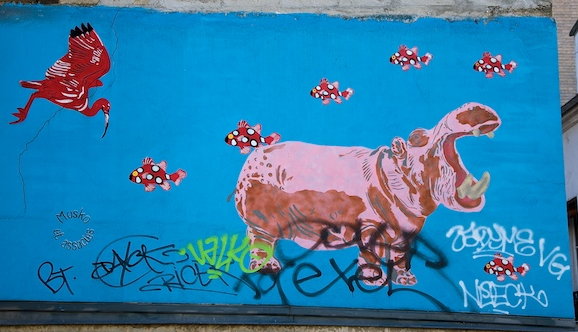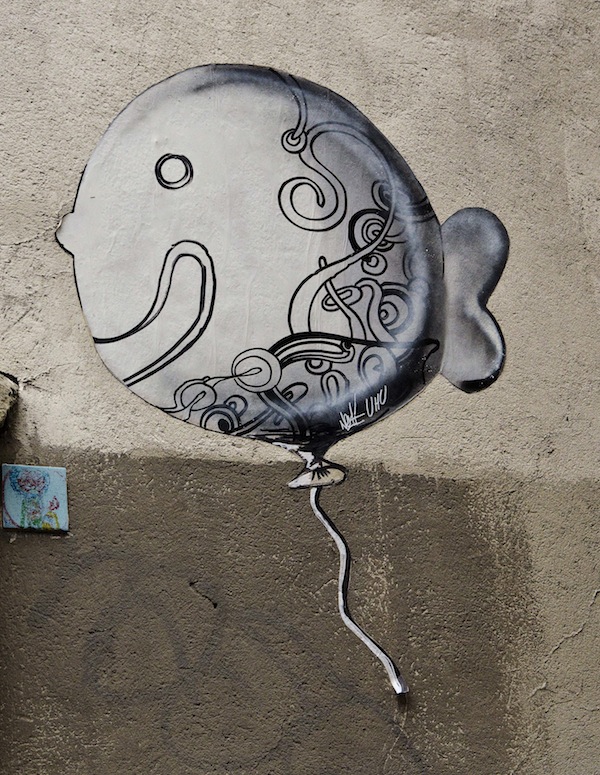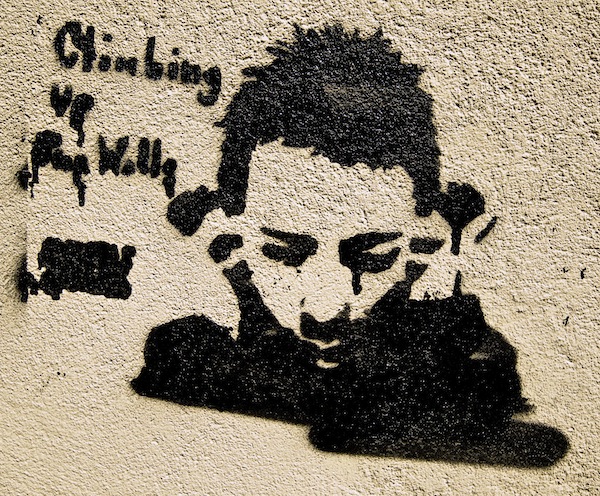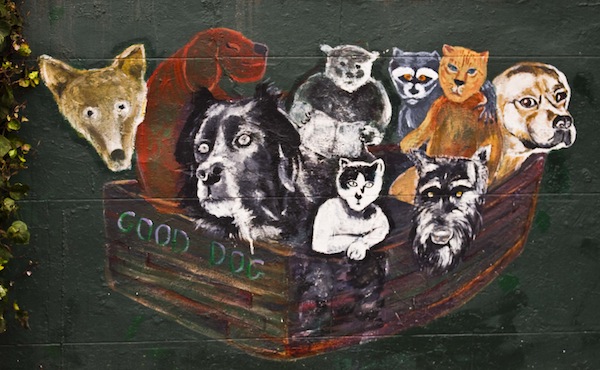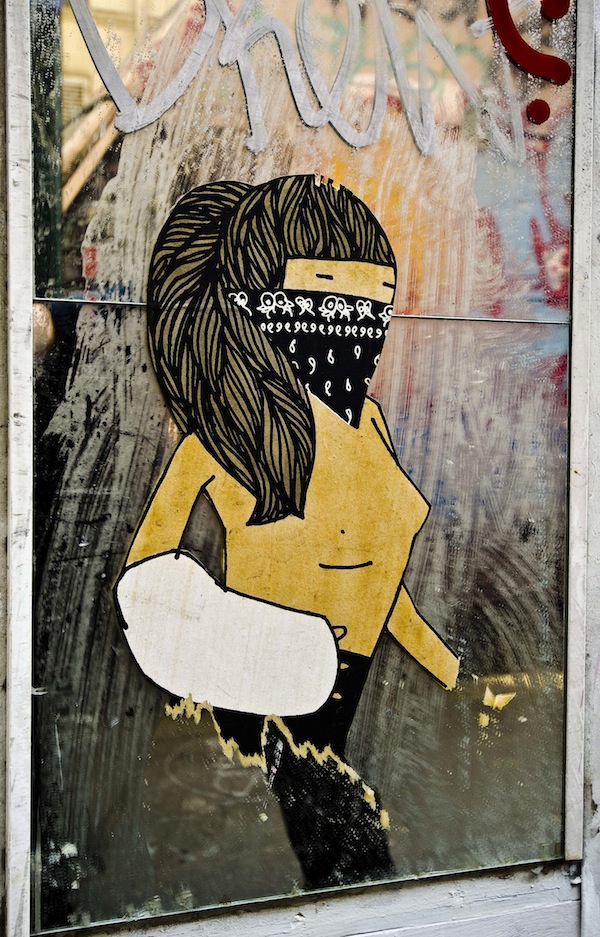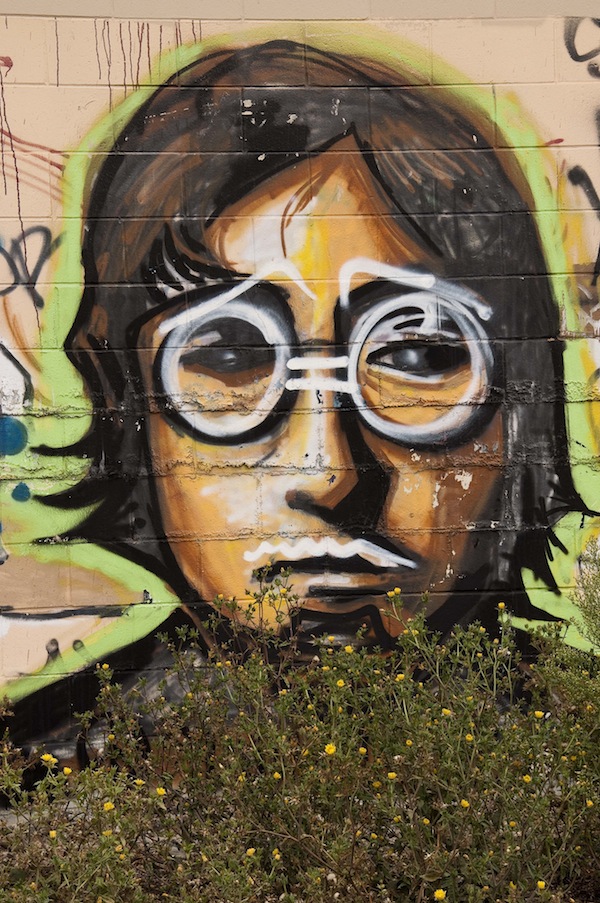How to Live: A Vision Quest, Part Two
 04.22.2011
04.22.2011 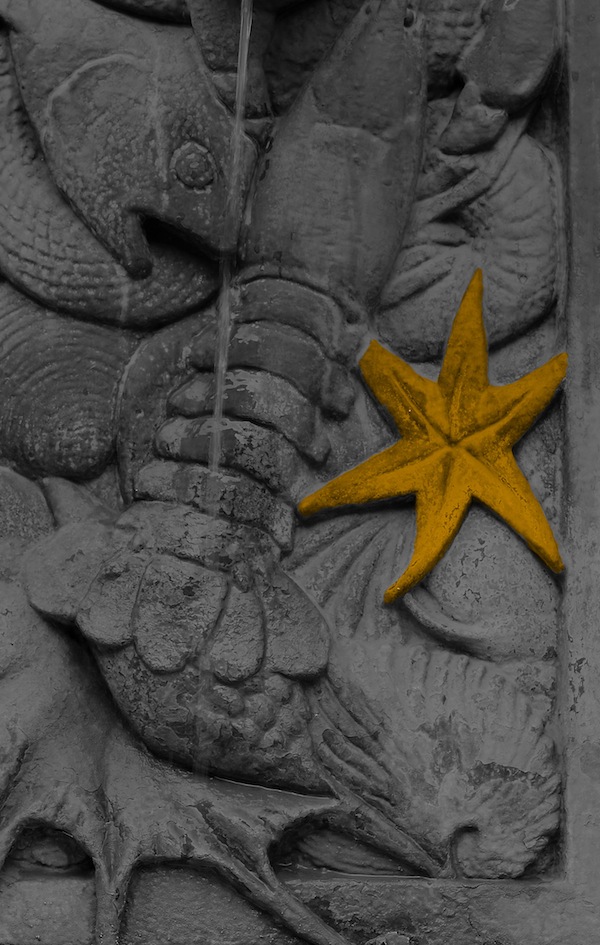
There were twelve voices.
I listened to each, and I named them.
Each had his or her desires and concerns. All were important, but some were more important than others. They took the shape of sea creatures:
Sea horse, Whale, Hermit crab,
Flying fish, Electric eel, Octopus,
Sea turtle, Mermaid, Starfish,
Shark, Dolphin, Swordfish.
I recorded my dialogues with them in my journals for about ten years. By that time, their natures were distinct and I had heard very clearly what each one represented and what each wanted. Each seemed to represent one of the twelve realms of life.
I began to draw a mandala every day, twelve petals around a circle, and colored each petal the color that I felt corresponded to the sea creature.
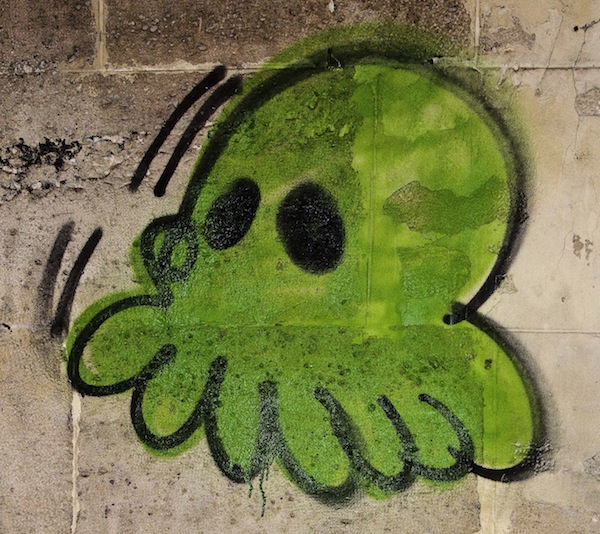
I wasn’t eager to discuss this process with anyone else, not after mentioning it to one boyfriend: “You talk to twelve fish? Maybe you should talk to a shrink.”
This work was eccentric, but I knew it wasn’t crazy. I knew because it was helping me find a sense of harmony and purpose.
After ten years I began to read mythology. All of C. G. Jung, Robert Graves’s The Greek Myths, and Joseph Campbell’s work.
What irony. Campbell had taught at, was still teaching at Sarah Lawrence, the very college I’d dropped out of. But I hadn’t been ready for his work then. If I’d encountered his books ten years earlier, I might have approached myth from the outside, rather than, as I was doing, from the inside, from my own subconscious.
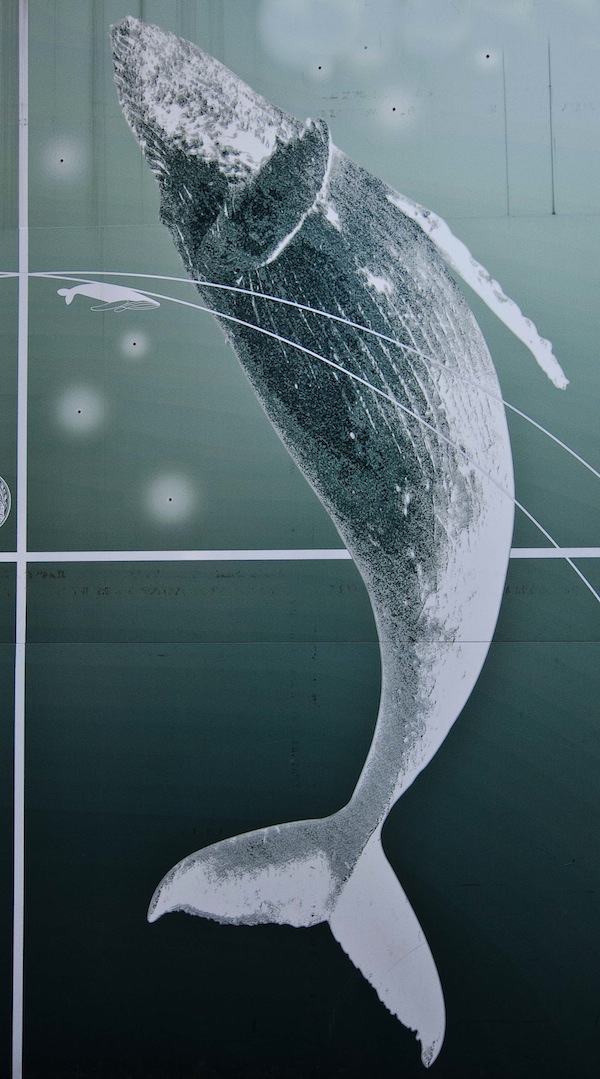
The electrifying thing I discovered was that these twelve inner creatures to whom I’d been talking for ten years, almost perfectly (with some minor variations) corresponded to the twelve gods and goddesses of ancient Greece. The only difference was that the Greeks saw these divinities as outside the human realm (though powerfully interacting with it and affecting it), and the modern variation I was discovering was a vision of them as twelve inner archetypes of the unconscious. (Because in symbolic terms, what else does the realm of water, and sea creatures, mean?)
Now, here in Paris, I still create my daily mandala, listening to the voices of each god and goddess, following their leads, and noting each day what I accomplish in each realm. That other Greek term that intrigued Montaigne, prosoche, means mindfulness, attending to the inner world, and in that way to the outer world as well, since uncontrolled emotion, chaos, warps one’s view of reality. My continuing dialogue with the gods and goddesses, and the creation of a daily mandala, is my method of prosoche.
The major four effects of this vision quest were:
* The sense of the sacred had been restored to me, not in the form of religion, somebody else’s rules, but in an individual vision of meaning. With a sense of the sacredness of daily life, comes imperturbability, freedom from anxiety, what the Stoics, Epicureans and Sceptics called ataraxia.
* I discovered my purpose as a writer: the god Daedalus, the craftsman, was at the center of my personal mandala.
* I felt a growing sense of harmony in daily life. When you are clear about your central purpose, and have control over your emotions, you are free to live in the present, and that brings joy, what the ancient Greeks called eudaimonia.
* My compulsive eating completely disappeared.
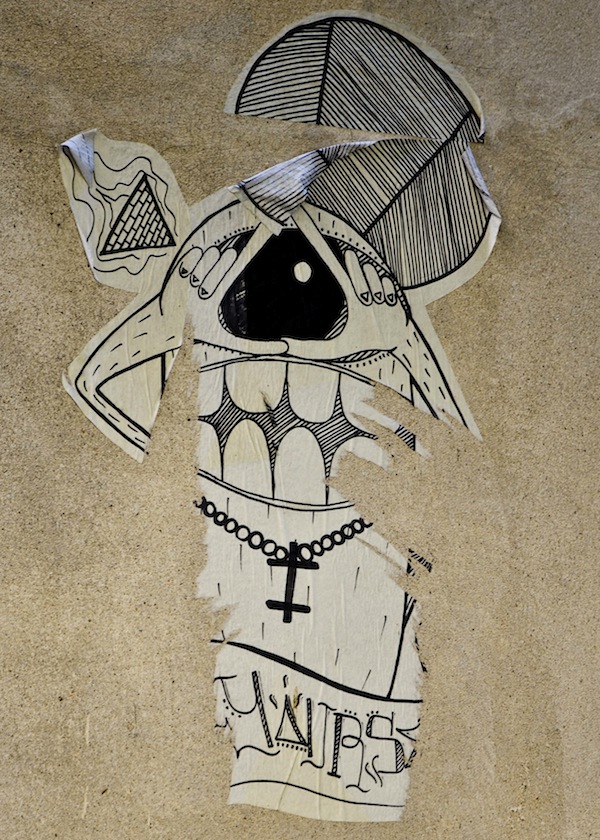
Any compulsive addiction: alcoholism, drug addiction, sex addiction, addiction to eating or not eating, is a sickness of the soul, a symptom of chaos, confusion, lack of clarity at the core. A spiritual symptom. And “symptom” is the key word: you cannot cure the behavior unless you cure the underlying sickness, which is always spiritual.
Okay, Kaaren, what do you mean by “spiritual,” anyway?
I answer, Invisible forces or archetypes or “spirits” inside you. And what is inside you is inside everyone, therefore, all around you. And these spirits are within birds, mammals, fish, plants, the earth itself, even her weather.
After thousands of years of a patriarchal vision that imagines the divine as a Single Dominant Male with a Human-like Visage, we’re returning to the vision of a more balanced force animating the world. Anima mundi, the ancients called it. Animism, as most so-called “primitive” peoples see the world.
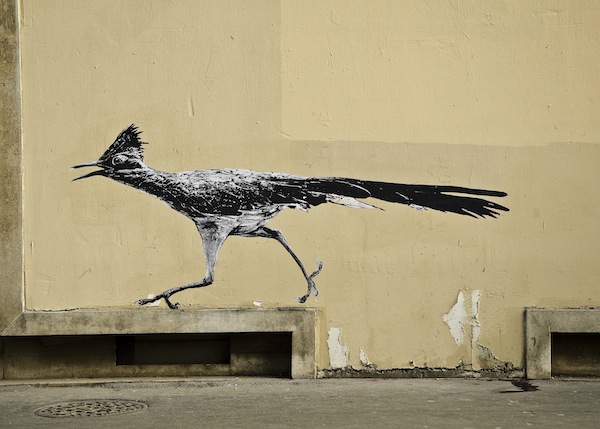
I grew up in the desert of Arizona, galloping around on a donkey among mountains and saguaro and abundant desert creatures, pygmy owls and jackrabbits, roadrunners and rattlesnakes, in a state where Papago, Hopi and Navajo lived.
Many of the kids in my elementary school were Native American. My Navajo friend, Nellie, lived in a hogan, one school bus stop beyond ours in Paradise Valley, before it was as populated as it is now. I encountered kachinas, carved and painted wooden dolls that represented the various spirits the Hopi saw all around them.
That the world was alive with spirits seemed obvious to me. Cat spirits had a particular hold on me. I remember (after our cat gave birth on my stomach in the middle of the night) cradling the newborn kittens and feeling such intense love I was afraid I’d squeeze them to death.
Animism: a world alive, animated everywhere by spirit.
Every spiritual vision leads to a way of treating other people, and of treating the world.
How differently would we choose to treat a world that we see as wholly alive, rather than the world viewed by our late industrial society as dead matter, as “resources” to be plundered?
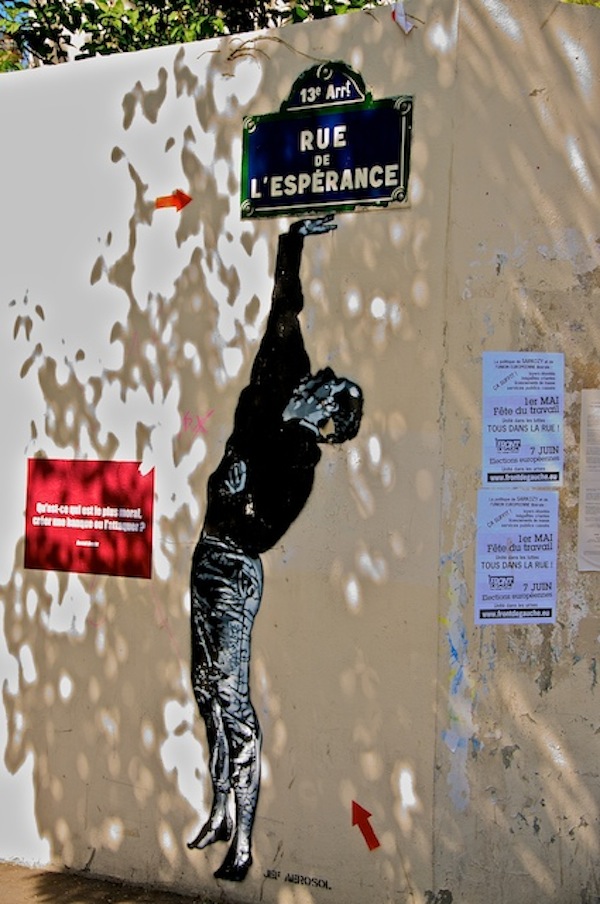
It seems to me that there are really four essential spiritual approaches:
* atheism
* agnosticism
* religion
* individual vision quest
The first two, atheism and agnosticism, were never a possibility for me. The third, religion, was compelling to me as a child, but then I grew up. An effective moral police force for much of the world, it relies on an image of external authority; 3.6 billion people who live under Christianity or Islam subscribe to a monotheistic, dominating male God who passes down laws that we humans, like children with their parents, must obey.
All along, traditional cultures that much of the ‘modernized” world treats condescendingly, like arrogant parents with naïve children, have had an animistic vision that I think may be the only one that can save our planet. Because if we do not return to en-souling all living things, if we continue to behave as if only man is alive (and more deserving than woman, animals, the earth) and as if all else is dead, we will realize that vision across the planet, the natural systems that support the planet will die, and we will, too.
